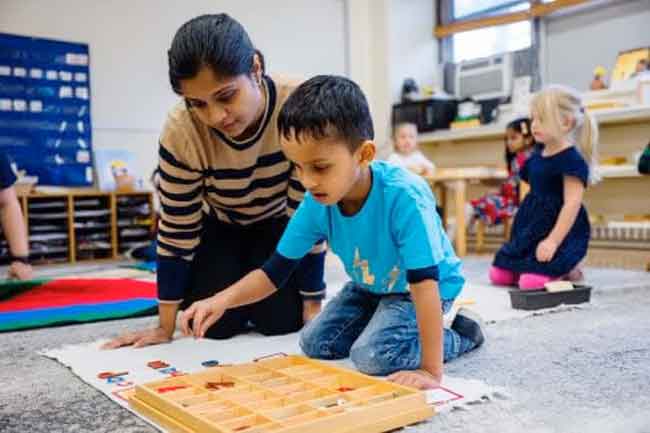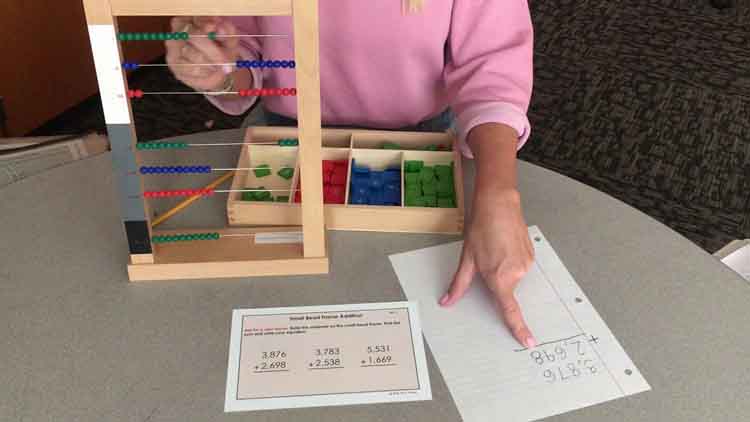Montessori education, founded by Dr. Maria Montessori in the early 20th century, emphasizes child-led learning in a carefully prepared environment. As the Montessori method gains traction in India, the demand for trained Montessori teachers is increasing. This article explores the significance, structure, and challenges of Montessori teacher training in India, highlighting its role in shaping the future of education.
Understanding the Montessori Philosophy
The Montessori philosophy centers on respecting children as active participants in their learning. It promotes independence, curiosity, and a love for learning. Teachers in Montessori settings are not traditional instructors; they act as guides facilitating an environment conducive to exploration. This shift in the teacher’s role necessitates comprehensive training that aligns with Montessori principles.
The Importance of Teacher Training
Montessori teacher training is crucial for several reasons:
- Understanding Developmental Stages: Montessori educators must understand the various developmental stages of children. This knowledge allows them to provide appropriate materials and activities that cater to individual needs.
- Creating Prepared Environments: Trained teachers can design and maintain learning environments that promote self-directed learning, encouraging children to explore and discover independently.
- Facilitating Learning: Educators must learn how to observe and assess children’s interests and progress, allowing them to tailor their guidance effectively.
- Promoting Inclusivity: Montessori training equips teachers with the skills to create inclusive environments that embrace diverse learning styles and backgrounds.
Structure of Montessori Teacher Training in India
Montessori teacher training programs in India typically include a blend of theoretical and practical components. These programs are offered by various institutes, both national and international, and generally follow these key elements:
- Course Duration: Most Montessori training courses range from six months to two years, depending on the level of certification (e.g., Infant/Toddler, Early Childhood, or Elementary).
- Curriculum Content: The curriculum covers Montessori philosophy, child development, classroom management, practical life skills, sensory education, language development, and cultural studies. Trainees also learn about the use of Montessori materials and how to create engaging learning environments.
- Practicum Experience: Hands-on experience in a Montessori classroom is a vital component. Trainees spend time observing experienced teachers and engaging with children to apply their theoretical knowledge in real-world settings.
- Certification: Upon successful completion of the training, participants receive certification, which is essential for employment in Montessori schools. Various recognized bodies, such as the Association Montessori Internationale (AMI) and the American Montessori Society (AMS), offer certifications that enhance credibility.
Challenges in Montessori Teacher Training
While the Montessori method is gaining popularity in India, several challenges exist within the teacher training landscape:
- Awareness and Acceptance: Despite the growing interest, there is still a lack of awareness about Montessori education among parents and educators. Many traditional educational institutions remain skeptical of its effectiveness, hindering the growth of Montessori programs.
- Quality of Training: The proliferation of training institutes has led to varying standards of quality. It’s crucial for prospective teachers to choose accredited programs that adhere to authentic Montessori principles.
- Cost and Accessibility: Training programs can be expensive, making it difficult for many aspiring teachers to afford them. Additionally, access to quality training in remote areas is limited, creating disparities in the availability of trained educators.
- Retention of Trained Educators: Even after receiving training, many educators leave the Montessori field due to lower salaries compared to conventional schools. This affects the stability and quality of Montessori education.
The Future of Montessori Teacher Training in India
To address these challenges and strengthen the Montessori education framework, several initiatives can be implemented:
- Awareness Campaigns: Increasing awareness among parents and educators about the benefits of Montessori education can drive demand for trained teachers and schools.
- Standardization of Training Programs: Establishing regulatory bodies to oversee the quality of Montessori teacher training programs can ensure consistency and adherence to best practices.
- Financial Support: Scholarships and financial aid for aspiring Montessori teachers can make training more accessible, particularly in underserved regions.
- Collaboration with Schools: Partnerships between training institutes and Montessori schools can facilitate ongoing professional development and mentorship for newly certified teachers.
- Research and Development: Encouraging research on the effectiveness of Montessori methods in the Indian context can further legitimize and promote its adoption in mainstream education.
Montessori teacher training in India plays a vital role in fostering a generation of educators who can effectively implement child-centric learning. By equipping teachers with the necessary skills and knowledge, we can ensure that the Montessori method flourishes, benefiting children across the country. As we embrace this innovative approach to education, the focus must remain on creating an environment where both teachers and students can thrive, paving the way for a brighter future in Indian education.
Content Prepared by: Pratheek
Contact no: +91 98468 08283




